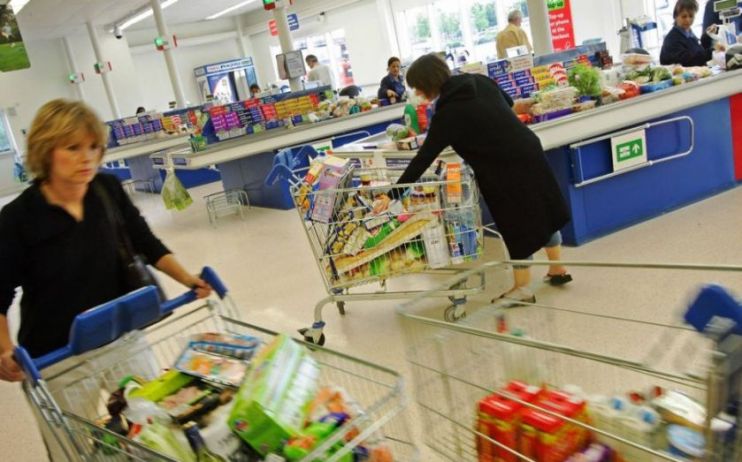Shop price inflation highest in a decade as Brits feel cost of living squeeze

Retail inflation has soared in the past month, with Brits eyeing discount retailers for cheaper prices as the country faces a cost of living squeeze.
Shop price annual inflation surged to 1.5 per cent in January, according to the British Retail Consortium (BRC) and Nielsen IQ shop price index.
This was up from 0.8 per cent in December and is the highest rate of inflation in a decade, since December 2012.
A sharp rise in non-food inflation pushed up shop price inflation, with furniture and flooring seeing particularly high demand. Rising oil costs made shipping costs more expensive, pushing up prices for these goods.
What’s more, food inflation rose to 2.7 per cent last month, up from 2.4 per cent in December. This is the highest inflation rate since October 2013.
Prices have been impacted by problems relating to the pandemic with domestic produce also hit hard by poor harvests and a labour crunch.
Helen Dickinson OBE, chief executive of the BRC, said: “The rise in shop prices is playing into wider UK inflation, which is pushing cost of living to the forefront of the political agenda.”
Many households would struggle to keep up with the extra costs, which come hand-in-hand with other hikes.
Dickinson added: “Retailers are working hard to cut costs, but it would be impossible to protect consumers from any future rises. As commodity prices, energy prices and transportation costs continue to rise, it is inevitable that retail prices will continue to follow in the future.”
Data released yesterday from insights firm Kantar also shone a light on sky rocketing prices, with four-week grocery inflation standing at 3.8 per cent, a 0.3 percentage point rise from December.
Households are facing an extra £180 to their annual grocery bill, Kantar said yesterday.
Shoppers hunt for deals
Fraser McKevitt, head of retail and consumer insight at Kantar, said: “Prices are rising on many fronts, and the weekly shop is no exception. Like-for-like grocery price inflation, which assumes that shoppers buy exactly the same products this year as they did last year, increased again this month.
He added: “We’re now likely to see shoppers striving to keep costs down by searching for cheaper products and promotions. Supermarkets that can offer the best value stand to win the biggest slice of spend.”
Discount retailers Lidl and Aldi both recorded simultaneous growth for the first time since June last year. Lidl’s market share has risen to 6.2 per cent while rival Aldi has hit 7.8 per cent.
However, Tesco continues to have the largest slice of the market, now 27.9 per cent.
Brits have been feeling the pinch as energy bills have soared while National Insurance is set to rise
Workers making their way back to the office have driven sales in hygiene and grooming products, with people keen to scrub up. Sales of razors have increased 20 per cent while deodorant sales have lifted 20 per cent.